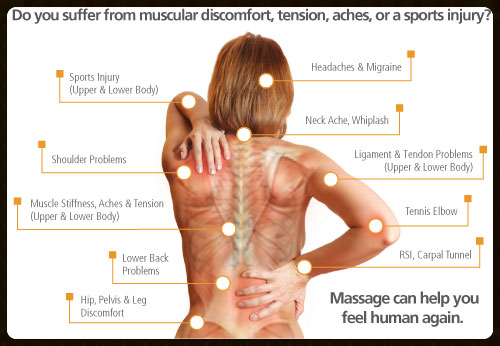Have you ever wondered what happens to your body after a massage? You know, that blissful feeling of relaxation and rejuvenation that seems to wash over you after a good session on the massage table? Well, we’re here to tell you all about it. As massage therapists ourselves, we’ve seen firsthand the amazing effects that a massage can have on the body and mind. And let me tell you, it’s pretty incredible.
When you get a massage, your body goes through a series of changes, both physical and mental. For starters, your muscles and tissues become more relaxed and pliable, allowing for increased blood flow and oxygenation. This not only helps to release any tension or knots that may have been present, but also promotes healing and reduces inflammation in the body.
But it’s not just your muscles that benefit from a massage. Your nervous system also gets a boost, as the slow, rhythmic strokes of the massage help to calm and soothe your body’s fight-or-flight response. This can lead to a decrease in stress hormones, such as cortisol, and an increase in feel-good hormones, like serotonin and dopamine.
So, if you’ve been hesitant to try a massage or unsure of what exactly it does for your body, we hope this has shed some light on the matter. In our upcoming article, we’ll dive deeper into the specific physiological effects of massage and explore some of the different types and techniques that can be used. Trust us, there’s a lot more to discover about the magical world of massage.

This image is property of imgix.bustle.com.
What Happens To Your Body After A Massage?
If you’ve ever had a massage, you know the feeling of relaxation and rejuvenation that comes afterwards. But have you ever wondered what exactly happens to your body during and after a massage? In this article, we will explore the immediate and long-term effects of a massage on your physical, mental, and emotional well-being. Whether you’re a regular massage-goer or considering it for the first time, understanding these effects can help you fully appreciate the benefits of this therapeutic practice.
Immediate Effects of a Massage
Relaxation
One of the immediate effects of a massage is deep relaxation. The gentle pressure applied to your muscles releases tension and promotes a sense of calmness. You may notice your breathing slows down, and your heart rate decreases. As you sink into the massage table, your mind becomes free from worries and stress, allowing you to fully unwind and recharge.
Reduction in Muscle Tension
Another immediate benefit of a massage is the reduction in muscle tension. Whether caused by physical exercise, everyday stress, or poor posture, muscle tension can lead to discomfort and pain. Through various massage techniques, the therapist is able to target specific areas of tension and help release the tightness. This results in improved flexibility and a sense of relief from muscle soreness.
Increased Blood Flow
Massage has been shown to improve blood flow throughout the body. The pressure applied during the massage helps to dilate blood vessels, allowing for better circulation. This increased blood flow delivers more oxygen and nutrients to the muscles, promoting faster healing and recovery. Additionally, the improved circulation flushes out toxins and waste products from the tissues, further enhancing the body’s natural detoxification process.
Decreased Stress Hormone Levels
Stress is a common factor in our daily lives, and high levels of stress hormones can have detrimental effects on our health. However, a massage can help counteract the negative impact of stress on the body. Studies have shown that massage can reduce the levels of stress hormones such as cortisol and adrenaline. As these hormones decrease, you may experience a sense of relaxation, improved mood, and reduced anxiety.
Physical Benefits of a Massage
Improved Flexibility and Range of Motion
Regular massages can contribute to improved flexibility and range of motion. As the therapist manipulates your muscles and joints, they help to stretch and lengthen the muscles, making them more pliable. This increased flexibility can enhance your performance in physical activities and reduce the risk of injuries.
Pain Relief
Whether you’re dealing with chronic pain or experiencing muscle soreness from a tough workout, massage can provide relief. The therapist’s hands can target specific areas of pain and apply techniques that promote relaxation and release tension. This can lead to a significant reduction in pain and discomfort, allowing you to move more freely and comfortably.
Enhanced Muscle Recovery and Healing
Massage plays a crucial role in the recovery and healing process of muscles. By increasing blood flow and oxygen delivery to the muscles, it accelerates the removal of metabolic waste products and promotes the delivery of nutrients needed for repair. Massage also helps to break down scar tissue and adhesions, reducing the risk of future injuries and improving overall muscle function.
Mental and Emotional Effects of a Massage
Reduced Anxiety and Depression
In addition to physical benefits, massage also has significant effects on mental and emotional well-being. Research has shown that regular massages can reduce symptoms of anxiety and depression. The calming and nurturing touch of a massage helps to release endorphins, also known as “feel-good” hormones, which can improve your mood and promote a sense of well-being.
Increased Mood and Well-being
After a massage, many people report feeling a sense of euphoria and heightened mood. The release of endorphins and reduction in stress hormones can contribute to this positive emotional state. As your body relaxes, your mind follows suit, allowing you to experience a greater sense of happiness and contentment.
Improved Sleep Quality
If you struggle with sleep disturbances or insomnia, massage may offer some relief. The relaxation induced by massage can help you fall asleep faster and improve the quality of your sleep. By reducing muscle tension and promoting relaxation, massage encourages a peaceful state of mind that is conducive to a good night’s rest.

This image is property of www.zeel.com.
Effects of a Massage on the Nervous System
Stimulation of the Parasympathetic Nervous System
The parasympathetic nervous system is responsible for the body’s “rest and digest” response. During a massage, the therapist’s gentle touch and rhythmic strokes stimulate this system, promoting relaxation and a sense of calmness. This activation of the parasympathetic nervous system counteracts the effects of the sympathetic nervous system, which is responsible for the body’s “fight or flight” response to stress.
Regulation of the Autonomic Nervous System
The autonomic nervous system controls many involuntary functions in the body, such as heart rate and digestion. Massage has been found to have a regulating effect on this system, promoting balance and homeostasis. This can lead to improved overall health and well-being.
Impact of a Massage on the Lymphatic System
Facilitation of Lymphatic Drainage
The lymphatic system is responsible for removing toxins and waste products from the body. Massage techniques, such as gentle strokes and light kneading, can help facilitate lymphatic drainage. This promotes the elimination of toxins and waste, supporting the body’s natural detoxification process.
Removal of Toxins and Waste Products
As the lymphatic system is stimulated and lymphatic drainage is enhanced, the body is able to efficiently remove toxins and waste products. This can result in improved immune function, reduced inflammation, and a healthier overall system.

This image is property of www.thehubnewmills.co.uk.
Effects of a Massage on the Circulatory System
Improved Blood Circulation
Massage has a profound effect on the circulatory system. The pressure applied during a massage helps to dilate blood vessels, allowing for increased blood flow. This improved circulation ensures that oxygen and nutrients reach all parts of the body, supporting cell function and promoting overall health.
Lower Blood Pressure
Regular massages have been associated with a reduction in blood pressure. The relaxation induced by massage helps to decrease stress levels and promote a calmer state of mind. This, in turn, can lead to lower blood pressure readings and a reduced risk of cardiovascular problems.
Enhanced Nutrient Delivery to Cells
The improved blood flow resulting from massage not only delivers oxygen to the muscles but also ensures that nutrients are adequately supplied to the cells. This can have a positive impact on tissue health and function, leading to improved overall well-being.
Effects of a Massage on the Musculoskeletal System
Relief from Muscle Knots and Tension
Muscle knots, also known as trigger points, can cause significant discomfort and limit range of motion. A skilled massage therapist can locate these knots and apply techniques that release the tension and promote relaxation. This targeted approach can provide immediate relief and increased mobility.
Improved Joint Mobility and Function
Massage can also have a positive impact on joints by improving their mobility and function. By releasing tension and reducing inflammation in the surrounding muscles, the therapist helps to restore proper alignment and balance. This can improve joint stability and range of motion, allowing for smoother and more fluid movements.

This image is property of bodysmarthealth.com.
Benefits of a Massage for Athletes
Enhanced Performance
Athletes of all levels can benefit from regular massages. By improving flexibility, reducing muscle tension, and promoting faster recovery, massages can enhance athletic performance. The increased range of motion and improved circulation can also contribute to better endurance and overall athletic ability.
Prevention of Injuries
Muscle imbalances, tightness, and poor flexibility can increase the risk of injuries in athletes. Regular massages can help identify these issues and address them before they lead to more serious problems. By promoting proper muscle function and alignment, massage can reduce the risk of strains, sprains, and other sports-related injuries.
Faster Recovery
After intense training or competition, the body needs time to recover and repair. Massage can expedite this process by improving blood flow and removing metabolic waste products. This can result in faster recovery times, allowing athletes to get back to their training and competition schedules more quickly.
The Role of Massage in Rehabilitation
Pain Management
Massage is often used as a complementary therapy in pain management. Whether you’re recovering from an injury or managing chronic pain, a skilled massage therapist can help alleviate discomfort and reduce reliance on medication. The soothing and relaxing nature of massage can also provide emotional support during challenging times.
Restoring Movement and Function
Injuries and certain medical conditions can lead to restricted movement and impaired function. Massage can play a crucial role in restoring movement and function by improving blood flow, reducing inflammation, and releasing tension in the affected areas. This can help regain flexibility and enhance overall mobility.
Improved Rehabilitation Outcomes
When combined with other rehabilitation techniques, massage can significantly improve outcomes. By addressing both the physical and emotional aspects of recovery, massage therapy supports the body’s natural healing processes and promotes a faster return to optimal health.

This image is property of health.clevelandclinic.org.
Conclusion
As you can see, the effects of a massage extend far beyond relaxation. From the immediate benefits of reduced muscle tension and increased relaxation to the long-term improvements in flexibility, pain relief, and overall well-being, massage therapy offers a multitude of positive effects for both the body and the mind. Whether you’re an athlete looking to enhance performance or an individual seeking relief from stress and pain, incorporating regular massages into your wellness routine can lead to significant improvements in your physical and mental well-being. So go ahead, book that massage appointment, and experience the transformative effects it can have on your body and your life.
